- Home
- Index
-
My Books
- Book List
- Writing/Reading Articles Listing
-
My Short Stories
- What God Lost
- What God Lost — Part 2
- When Hope Was Lost
- A Battle in the Heavens
- To Live Forever
- Finding Peace
- Empty Hands
- From Fire and Thunder to Love and Submission
- The Coming One
- Forgiveness Made Possible
- The Innkeeper's Wife
- Do You Have The Right Words?
- The Lamb of God As Told by a Scribe
- What Love Is This?
- When Heaven Came Down
- Family
- Faith

I write about what matters...to you---
women, wives and moms---
about your family, faith and future.
I write about what's hard, what helps and what heals.
I show you how it's done. And not done.
I hold your hand as you find what matters to the Savior.
And let go of those things that mattered to you, but not to Him.
I write about what matters...to Him.
Sonya Contreras
How Would Your Faith Compare?
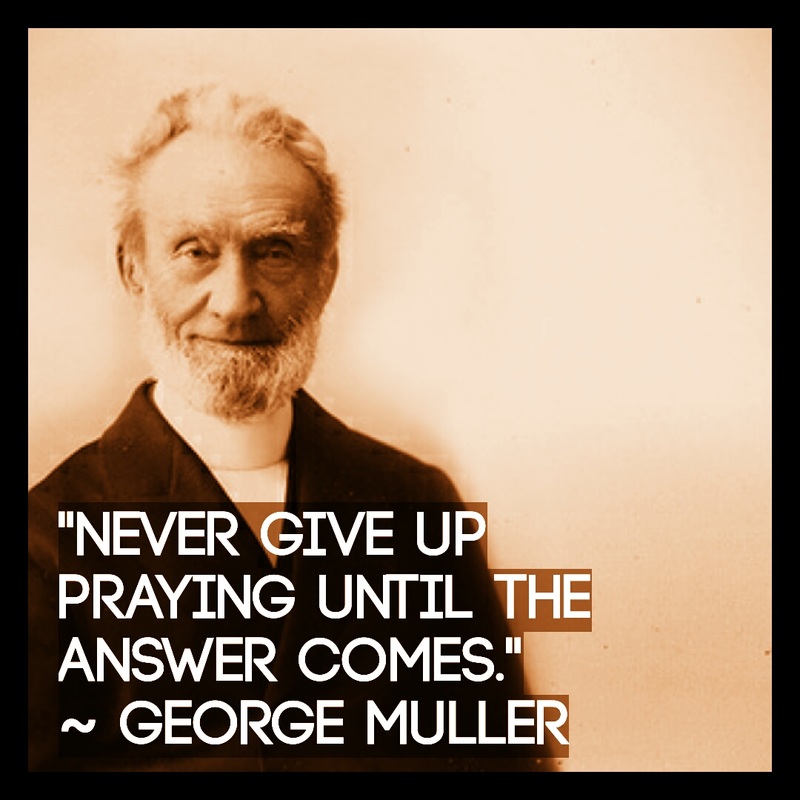
When George Müller stole money from his father, he received a caning he would long remember. He vowed that day—not that he would never steal again, but that he would not get caught. George Müller was ten.
He kept his promise until he was 16 when the police caught him. He spent Christmas in jail for leaving an inn without paying his five-night stay.
At Halle University, using his father’s generous allowance, he partied and lived off “takings” from his acquaintances.
CONVERSION
Henry Craik invited George to a Bible meeting. They couldn’t preach without being a state-ordained pastor, so the leader read sermons.
George went to gain stories for a good laugh in the ale house. Instead, he returned to the meetings for a week and gave his life to Christ.
After attending the Bible meetings for six weeks, George knew he should be a missionary.
When he shared his decision with his girlfriend, she replied, “I could never be a missionary’s wife! Missionaries are poor. They wear drab clothes and ride in carriages I wouldn’t be seen dead in. It’s the mission field or me.”
George agonized over his decision for several weeks: his choice—be a missionary.
FAITH TESTED
When he requested his father’s signature to transfer to a missionary school, instead of forging his signature (as George previously had done), George explained, “Being a Lutheran pastor or a missionary isn’t so different. Both are callings that honor God.” This was in contrast to his drinking, gambling, and partying—things his father had nagged him for years to stop.
His father’s response, “Honor! Don’t talk to me about honor. What is the fifth commandment?”
George hung his head. “Honor your father and mother.”
His father asked, “Did you honor your mother when she died before you returned from partying all night?”
When his father stood resolved not to sign the papers, George presented his decision: he would not accept his father's money for anything and would graduate from Halle University.
Returning to school, George had no money for food, books, school or housing. But wasn’t it too childish to ask God for such a request? Wasn’t God busy with more important things?
But after no job was found, he fell to his knees and prayed.
Dr. Tholuck, Halle University’s new professor of divinity at Halle, came to George's dorm room and offered George a job translating and selected him as one of the two divinity students to live in an orphanage close to the school rent-free.
George graduated, and left Prussia for London to study at a missionary school to reach the Jews for Christ.
While there, George preached. He found, not only Jews, but all people needed to hear the ¯gospel.
SERVING TOGETHER, FAITH GROWS
George met Mary Groves. He hesitated to marry her, thinking a wife would hinder his service to God.
Mary responded, “Marriage is not a prison restricting what you do. I’ll be a partner in faith helping you.”
And so they married.
He packed her four huge, heavy trunks to move to Teignmouth. “What’s in these trunks?”
Mary replied, “The family silver, my mother’s china, and several tapestries that have been in the family for generations.”
They started their year, George traveling and preaching, Mary decorating and creating a home for them.
George’s returned from preaching and told her, ”They have to go.”
“What?”
“Everything.” George waved his hand around the room. “The silver, china, tapestries. Everything that’s not necessary.”
“Why?”
“I travel all over Devon preaching the Bible is to be taken literally yet I come home to a home filled with baubles. Didn’t Jesus say, ‘Sell all you have and give to the poor?’”
“Yes, but—“
“But what? Your brother did that.”
“But he’s a missionary, that’s different.” Mary responded.
George asked. “Have you forgotten you married a missionary: a Prussia Christian, sent by God to England?”
Mary didn’t say a word.
The next evening when George returned home, the silverware, china, and tapestries were gone. In their place was a stack of pound notes.
Mary pointed to them, “Do what you think best with it, George, and may God help us both.”
Several weeks later, George had more news for his wife. His salary was paid by pew renting. A family rented a particular church pew for Sunday. Those who paid the most, received the nicest pews, leaving the poor to sit in the back on the cheap seats. That’s how England paid their ministers for hundreds of years.
George thanked Mary for selling her cherished things. Then added, “There’s another matter. . .” George took a deep breath. “It’s the pew rent. We don’t treat all men equally, if we give the rich people a better pew. James tells us not to show favor to the rich.”
“But George, that’s our income.”
“I know.”
“You want me to say it’s all right to give up our income?”
“Yes. It’s the right thing to do. The congregation should be free to give to us because God directs them, not because they receive the best pew in the church.”
“But what if they don’t want to give freely to us?”
“Then God will provide for us in another way.”
Mary was silent for a long time. “Do what you think is best, George. I can trust God, just like you do.”
Mary was his faith partner.
And God did not let them down.
When they hung a sign for the offering, George said, “We are at God’s mercy now. We will never ask anyone for money. Instead, we will look to God to supply our needs.”
They depended totally on God.
They sat for a meal with nothing but the plates in front of them.
Answering a knock at the door, George received a special delivery—a whole ham.
Another time a stranger handed Mary freshly baked bread.
George found money stuffed in his Bible.
Mary found coins slipped into her purse.
What did they learn that hard year of faith?
God did provide.
They never missed a meal or had a need not met.
They learned to trust God fully. They gave away extra money.
They only kept what they needed, but nor did they borrow for any need.
They believed God would provide exactly what they needed when they needed it.
And He did.
Everything was going well for George with his congregation in Teignmouth, except George didn’t think he belonged there anymore.
When he told Mary they should move to Bristol, she couldn’t understand why.
George guest-preached in a church at Bristol.
George and Henry Craik (the man who invited him to those Bible meetings while at the university) listed stipulations for the congregation at Bristol to agree before they would accept the position as pastors of Gideon Chapel
- George and Henry Craik would be joint pastors, neither one being the senior pastor.
- He and Henry Craik would not be traditional pastors, but would be free to do whatever God called them to do.
- Pew rents would be abolished. Neither man would be paid a salary.
The congregation accepted their conditions.
George and Mary must move.
Their first child was due.
Mary said, “I can have the baby in Bristol as I could here, though I’ll miss my friends. Do what you think is best, George.”
It took less than an hour to pack their few belongings and move to Bristol.
CHOLERA EPIDEMIC, FAITH TESTED
They weren’t there a month, when the church bells tolled nonstop as a cholera epidemic hit Bristol.
Thousands died.
George and Henry Craik were called all hours of the day and night to pray with the sick.
Through June, July, and August, bodies piled up waiting to be taken away.
Their church congregation prayed for their city.
Every morning Mary watched her husband return to the disease-infested homes to hold a hand of a dying child or help a woman lay her husband’s dead body out. “What if you get sick?”
George’s response, “I have to do it. Someone must tell them, ‘God cares.’”
Mary asked, “What about me and our little one? You might not live to see it born.”
“I can’t hide in my house while people need God’s comfort.”
“No, that wouldn’t be the man I married.”
On September 16, George did stay at home to assist the midwife deliver his daughter, Lydia.
By October, the cholera epidemic had run its course.
The congregation at Gideon Chapel held a thanksgiving service. Of the two hundred people who regularly prayed for their city, only one had died.
BEING A MISSIONARY
George received 200 pounds from a friend in Baghdad to join him as a missionary. Finally, his dream to be a “missionary” would be fulfilled.
But God was directing George another way.
On George’s way to visit a member of his church, he met a five year old girl carrying a toddler on her back. She asked if he could spare a shilling. Her “ma was gone with the cholera and her pa never returned from the mines.”
After giving her a shilling, her image stuck in George’s mind.
He didn’t need to go to the mission field. Bristol was his mission field.
George didn’t know what one lone man could do but he would pray for the poor homeless children of Bristol.
Mary and George began by inviting the homeless, poor children for breakfast and to read the Scriptures.
And so the Breakfast Club began.
Within a year, they had no room for more.
George couldn’t reach the hundreds of children in Bristol from his parlor.
After pacing and praying, God inspired George to start the Scriptural Knowledge Institution for Home and Abroad.
This organization would
- establish day schools, Sunday schools and adult schools for the poor.
- provide Bibles for those who couldn’t afford them,
- give financial and prayer support to foreign missionaries.
The organization would never
- ask a non-Christian for money or allow them to be on its board,
- go into debt
- but judge success, not by how much money it raised, but by how it spent what it had
George and Henry Craik took their proposal to their congregation.
Their response was mixed. Many thought it foolish; others said they’d help.
After two weeks with nothing given, George prayed specifically. “God, send twenty pounds to buy Bibles to give away.”
That night, a woman brought twenty pounds for Bibles.
George knew God was about to open the floodgates.
Within six months of that twenty-pound note, the Scriptural Knowledge Institution for Home and Abroad had 120 children in Sunday School, 200 children and 40 adults in day schools, gave away 1,000 Bibles, and sent 57 pounds to missionaries overseas.
George continued as pastor of Gideon and Bethesda Chapels, giving free breakfasts to the poor, overseeing the day schools, Sunday schools, and now cared for two of his own children.
In June 1835, Elijah, his son, died of influenza.
Four days earlier, Mary’s father also died. She arranged two family funerals in a single week.
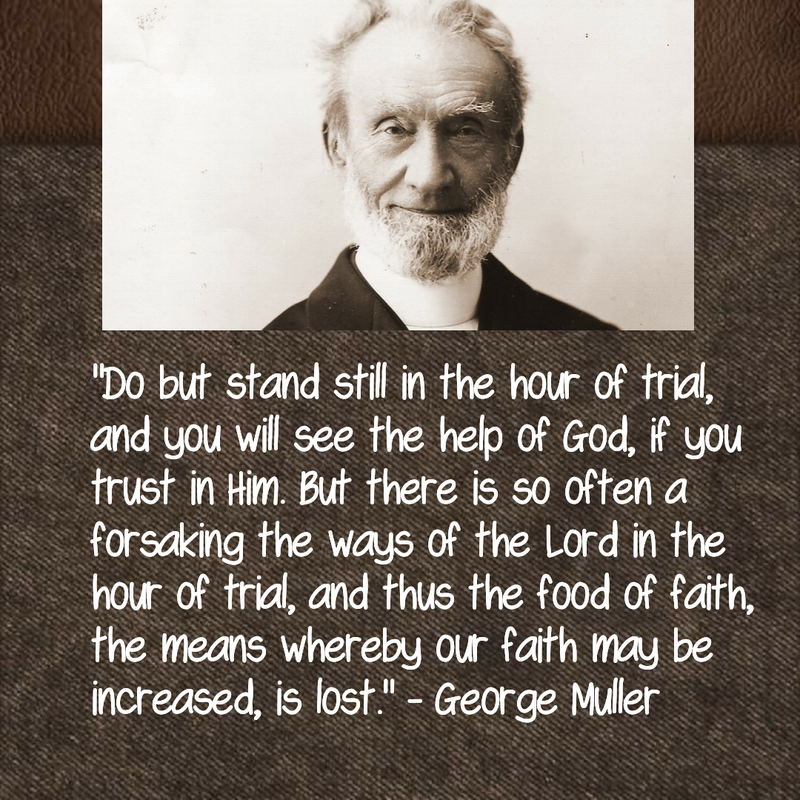
A DREAM FORMED
George became ill and recovered at the Isle of Wight. He read biographies of missionaries like John Newton and the newspapers. Every day the Poor Law Amendment Act made the headlines. Before 1834, the English government through churches supported the jobless until they could find work. This kept families from starving and allowed men to return to work as soon as they could find it.
But in 1834 all changed.
The government removed their support.
Without help, orphans, single parent families and struggling working families had nowhere to go.
Except the poorhouses.
Poorhouses separated families. Everyone over six years old worked twelve to fourteen hour days, crushing horse and cow bones by hand, breaking rocks, and grinding corn. After working, they fell into their lice- and flea-infested bunks to rise again the next day to do it again. For their labor, they received two meals, eaten in silence. Children weren’t permitted to see their parents.
Disease flourished.
Death rate was high.
Hopelessness caused many suicides.
George returned to Bristol in better health, praying for God to enlarge their work.
Freddie, one of the first boys to enroll in the Scriptural Knowledge Institution, was taken to the poorhouse. He wouldn’t be allowed visitors, nor permitted to go to school or own private property, not even his Bible.
While George considered what to do about Freddie, and all the other children who were at the poorhouse, he visited Bill Wentworth, a member of his congregation.
He asked Bill if he had time to pray and study his Bible.
Bill coughed. “I work sixteen-hour days. Afterwards, I’m not good for anything but sleep.”
“Can you work less? You don’t sound healthy.”
Bill responded, “If I didn’t work all the time, my family would be dragged to the poorhouse—we all know what that’s like.”
George understood. “But God has promised to supply all our needs, if we seek his kingdom first.”
“Fine idea. But if I cut back on my hours, I don’t think God would provide real things like shoes or food, do you? I mean, you preach it and all, but I’ve never seen it for myself.”
George longed to show a person if he honored God, God took care of him.
George visited Elizabeth Brinsdon, another member of his congregation. Elizabeth pointed out a book in her library. “This book might interest you, Pastor. It’s the English translation of A. H. Franke’s life. He was the professor from Halle University who started the orphanage across the street from Halle.”
George took the book. He knew the university and the orphanage well. (It was where he had stayed while going to the University.) He wanted to know A. H. Franke better.
After reading the book, George prayed, “Help me reach the orphans of Bristol before it’s too late.”
George told his congregation at Gideon Chapel. “God has told me to start an orphanage.”
There would be no collections, nor asking for money, nor payment from children.
Instead George would rely on God to supply all the needs of the orphans.
The response from the congregation:
“Better to take one or two into your home. It doesn’t do to bite off more than you can chew. Besides if the orphanage fails, what an embarrassment to us all.”
“Never heard of such a thing. Poorhouse is the best place for an orphan.”
“If you were an Englishman, Mr. Müller, you’d know this thing isn’t possible in England. It’s not how we do things here. Perhaps asking God to supply all your needs is what’s done in Prussia, but not here.”
George responded, “I believe God is our Provider wherever we live.”
One woman placed a ten-shilling note into George’s hand, “I will pray for you every day. May God guide you.”
Another woman said, “I don’t have book learning, but I know how to cook, clean, and mend socks. If you can use me, I’ll work. Don’t worry about paying me. The Lord has never let me starve yet, and I don’t think He’s about to now. If you can have faith for those thirty girls (that’s what George proposed to start with), I can have faith for myself.”
The next day a letter arrived offering their service as a married couple for the intended orphanage. They also gave their furniture for its use.
Over the next weeks, things for the orphanage poured in: blankets, fabric for nightgowns, tablecloths, pillowcases, sheets, basins, plates, silverware…arriving hourly.
George recorded every item and every penny donated.
George rented a house with money given.
Everything was ready to open the orphanage on February 3, 1836.
George waited that entire day.
Not a single orphan came.
When he returned home to tell Mary, she laughed. “We prayed for coal, food, paint, workers, but we never prayed for the children.” And so, they prayed.
By the end of the month, they had received twenty-six girls.
As the orphan need continued, George opened three more orphanages. One for younger children, one to accommodate the boys who would be too old to stay at the “baby house” and another for more girls.
All these houses were on the same street: Wilson Street.
COMPLAINT TURNED BLESSING
When he received a note from a neighbor, he was excited thinking another house had opened for rent. Instead, George was dismayed by the complaint.
Four orphanages on one street were noisy. The drain in the street backed up from overuse. The water pressure reduced to a trickle because the orphanages used so much water.
The neighbor asked George, “Would you want to live next to your own orphan houses?”
George acknowledged the neighbor had a point.
Mary and George began to pray for a place in the country where noise and room would not be an issue. Great amount of time and money would be required for a move of this size.
George shared their request with their congregation. They prayed.
George gathered information to pray specifically for each aspect of the project.
After thirty-six days of praying, George received a bank draft for one thousand pounds: the largest single donation ever received.
An architect donated his skills.
They prayed for land.
George attempted to purchase land, but the owner wanted $1000 pounds per acre. Although worth it, George couldn’t use that much money.
George prayed and was directed to look at land not even for sale.
Mr. Hazelworth, the owner, told George this story, “My butler told me how you visited, wanting to buy my land. Last night, I decided to sell it to you for two hundred pounds per acre. But as I struggled to sleep through the night, I couldn’t escape the feeling I should offer you the land for one hundred and twenty pounds per acre. I won’t make any profit, but maybe I can sleep tonight.”
George bought it.
George, Mary, and their congregation prayed the building into existence.
On June 18, 1849, it was time to move all four orphanages. The children marched in two orderly lines from Wilson Street up Ashley Down where their new home waited.
VISITORS WELCOMED
Every Wednesday afternoon visitors were welcome to tour the orphan houses and grounds.
Charles Dickens arrived unannounced. He’d heard rumors that children were treated like slaves, there wasn’t enough food, and they had rat-infested rooms. He’d come to investigate.
George Müller gave his assistant his keys. “Take Mr. Dickens anywhere on the property he desires to go. Open any door he wants. Don’t return until he’s completely satisfied he’s seen everything he wants to see.”
Three hours later, Dickens returned full of praise for what he’d seen. He promised to write an article squelching the rumors once and for all.
The orphanage blossomed and grew.
At times the children sat before their empty plates, and George Müller would thank God for what He would provide.
A knock at the door revealed a man explaining he was awakened in the early morning to bake bread for the children.
Another time a milk truck broke down and had to lighten his load to repair it. He gave them his milk.
God provided.
SORROWING
On February 6, 1870, Mary Müller died, leaving George, Lydia and two thousand orphans to mourn her. At her funeral George spoke of her love for all the children and hard work on their behalf for thirty-four years.
Her funeral was one of the largest Bristol had ever seen.
Afterwards, hundreds of letters poured in from adults who had been children at the orphanage, expressing their memories of Mary’s love to them.
George and Mary had often prayed about who should replace them and run the orphanage. They had agreed to Jim Wright. Jim had been George’s assistant. With Mary gone, George felt it was time for Jim Wright to succeed them.
Jim and his wife Annie prayed and agreed. They no sooner agreed that Annie died.
Lydia Müller, George’s daughter, had taken over many responsibilities that had been her mothers’. Jim and Lydia worked together, fell in love and married.
SPEAKING TOURS
When they began care of the orphanage, George married Susannah Sangar. Because she was twenty-one years younger than George, she had energy to organize a preaching schedule for George around England. George was seventy. After the successful tour, she arranged more, including his own country Prussia, and America.
On their way to America, the ship became fog-bound, unable to continue.
George told the captain he must be in Quebec by Saturday afternoon.
The captain replied, “That’s impossible. There’s not a thing I can do about it.”
George said, “I have not missed a single engagement in fifty-two years and don’t intend to start now. Come to my cabin and we’ll pray together.”
As they walked to his cabin, the captain said, “What’s the use in praying? The fog’s so thick I can’t see the stern. Look for yourself.”
George continued to his cabin. “I don’t need to look. My eye is not on the weather, but on the One who controls the weather.”
George prayed, then looked at the captain. “There’s no need for you to pray. You don’t believe God will answer prayer, but I believe He already has. Open the door.”
The captain peered through the open door. “The fog’s gone! Just like you prayed.”
The Müllers traveled over two hundred thousand miles, visited forty-two countries, and shared the gospel message with people from all backgrounds and religious persuasion.
FAITH COMPLETED
Susannah Müller, twenty-one years younger than her husband, died. Her death was sudden, after twenty-three years of marriage.
George moved into the orphanage. He prayed, “Lord, I’m not alone, for You are with me. I have buried my wives and my children, but You are left. I’m never lonely or desolate with You and with Your smile, which is better than life.”
On Wednesday, March 9, 1889, George expressed difficulty getting dressed that morning. He led the prayer meeting at Orphan House Number Three and returned to his room to read his Bible. He had read it through over three hundred times since becoming a Christian. Then he retired.
Around five o’clock the next morning, George Müller died.
FUNERAL
The biggest funeral service in the history of Bristol took place the following Monday. All the shops and businesses closed.
Thousands lined the streets to catch a glimpse of the funeral procession.
About 1500 orphans, all those old enough to walk the distance, marched in rank behind the coach carrying George Müller’s coffin.
The children were joined by hundreds who had grown up in the orphanage, some when it opened in 1836 on Wilson Street.
Seven thousand people stood at the cemetery as George was buried between his two wives, Mary and Susannah.
The Daily Telegraph reported that George Müller, “Robbed the cruel streets of thousands of victims, the jails of thousands of felons, and the poorhouses of thousands of helpless waifs.”
How?
The Liverpool Mercury Newspaper answered, “Mr. Müller has told the world that it was the result of ‘prayer.’ The rationalism of the day will sneer at this declaration; but the facts remain.”
In the sixty-three years George ran the orphanage, he cared for over 10,000 orphaned children.
George Müller went from stealing from his father and swindling money from his friends to a man God trusted with a fortune, yet kept so little for himself that when he died, he had only 160 pounds in his estate, most in furniture.
In his lifetime, nearly one and one-half million pounds passed through his hands. In addition to supporting the orphanage, 115,000 pounds ran Sunday schools and regular school around the world. Ninety thousand pounds printed and distributed Bibles. Over 260,000 pounds supported missionaries. One missionary organization was the China Inland Mission, founded by Hudson Taylor. During a difficult time in China, George sent enough money to Taylor to support all the missionaries of the China Inland Mission.
Huge sums of money passed through his hands as he recognized the money as God’s.
As a result, thousands of lives were changed.
When George Müller died in 1898, many predicted the orphanage would also die.
But George’s faith proved them wrong.
His son-in-law Jim Wright managed the operation as it always had.
After time, health conditions improved in the city, eliminating epidemics and the resulting orphans.
By the end of World War II in 1945, only 180 orphans were living at the orphanage.
The orphanage homes were sold and converted into a Technical Institute.
Money from the sale of the homes bought smaller homes, known as Müller Family Homes. Orphans lived in a family setting.
One house called Müller House was used as the headquarters for the Müller Foundation, recording a small museum.
In the 1970s, the need for orphan care decreased even more. They opened daycare and family support centers where parents and children could find help.
In 1987, Christian groups were sent to public schools to lead assemblies.
In the late twentieth century, the shift for elderly care came. Some of these elderly were once the orphans of younger years.
The Scriptural Knowledge Institution still goes on. In 1998, one hundred years after George’s death, over 400,000 pounds was given to missionaries all over the world.
Today, not only is George Müller’s work still known, but 165 years after George began, others still carry on the work, praying and meeting the needs of children and adults.
Faith? George Müller knew how to wait and trust God to answer his prayers.
He always did.
Benge, Janet and Geoff. George Müller: The Guardian of Bristol’s Orphans. Christian Heroes: Then and Now. Seattle, WA: I Wam Publishing: A Ministry of Youth with a Mission: 1999.
Displaying 1 comment
Faith
Find more articles about faith here:
Reminders of What's Important
God's Unmeasurable Love
A Quarter of a Century Spent for Our Country
What Were You Thinking?
Who Are You Watching?
Boundaries for a Better Life
God's Boundaries
Memories of a Hero Mom
The Ripple Effect
How Do We Think Like Jesus
Litany of a Waiting Woman
Ever Cook a Frog?
New Year's Reminders
They Galled Her Gammy
When God Speaks
A Russian Christmas Story
Be Thankful
Be Grateful
Are You Tired of the Same, Old Thing?
(reprint)
Laughter—Why Laugh?
Mom
Are You Disturbed?
Unity of the Brothers
Encouragements To Declutter
Do You Have Too Much Stuff?
Too Much Stress
Getting Past the Noise—The Value of Silence
Are You Scatterbrained?
How Good Are You?
Looking for Something Good To Read?
A Cup of Cold Water
I Will Trust When I Cannot See
Encouragement—What Is It?
Being in God's Presence
"Einstein and the Professor"
When God Is Silent
Do You Crave Beauty?
Using Stories to Discipline
The Danger of the Wrong Story
Using Stories to Teach Lessons
God is in charge of the future
November Dare Joy Challenge
Ungratefulness
Developing an Attitude of Gratitude
Looking for Jesus
What Do Your Prayers Reflect?
Life's Little Pleasures
Daniel—Greatly Loved by God
Take Every Thought
Jars of Clay
What Do Your Words Reveal about Your Heart?
How Do You Get Strong Faith?
Too Busy for God's Word?
How Do You Think Like Jesus?
Reflections from a Mom
Pain—What's It Good For?
Why Marry?
Consider the Robin
One Life Who Made a Difference
What Day Are You Living In?
Interrupted by God
Is Jesus Really the Answer to Everything?
Are You Beat Up?
What's Your Hurry?
Are You a Manipulator?
Are You Salty?
Are You Condemned?
Trying to Understand?
Do You Expect Answers to Your Prayers?
Do You Eat Your Stress?
Need Focus?
Going through Trouble?
Immanuel—God with Us
Looking for a Relationship?
When God Says, "No!"
What Do You Do with Left-Overs?
How Great Is Your God?
Are You Needy?
How Do You See Sin?
What Do Your Words Mean?
Is Evil Overwhelming You?
Those Aha Moments
Is Your Soul Happy?
Are You Ignored?
Looking for the God Moment
Do You Know Truth from Almost Truth?
I Believe in Jesus—What Now?
Do You Have Your "Son"-Glasses On?
Less Is More
Singing His Praise
Are You Trying To Do It All?
What Do You Do with All These Prayer Requests?
Have a Problem?
Do You Know How to Pray?
Looking for God in Every Moment
Are You Receptive to God's Blessings?
Tell the Senate: Mothers Aren't Birthing People
Is Your Life Complicated?
How Do We Fight Evil?
Fearfully and Wonderfully Made
Giving Up or Taking Away
the Bible is simple
Are You a Dripping Faucet?
What's Your Testimony?
The Final Move
Be Careful What You Wish For!
Are Your Prayers Answered?
I Choose Joy
What Have You Learned from Your Hardship?
Who Are You Trying to Change?
What's Your Five-Year Plan?
The Danger of "Aloneness"
My Colors
Are You a Whiner?
Are Your Works Approved?
Do You Think You're Stressed?
Is Your Soul Feeling Ragged?
God Speaks to the Heart of the King
What about the Details?
Have You Felt the Long-Suffering of God?
How Does God Lead You?
Do You Have Enough?
Don't Carry More than You Need
Cast the Seed
God Is Faithful
Are You Deceived?
Are You Essential?
Are You Safe?
Are You Tired of the Same Old Thing?
Does the World Make Sense?
Have You Seen God's Majesty?
Do You Feel Judged?
If You Only Had One More Day To Live
Are You Understood?
Do You Long for the Word of God?
Slow Down and Smell the Dead Leaves
Are You Hospitable?
Our Heritage Is Bought by Blood
Are You Disturbed?
Are You Depressed?
I Did It My Way
Finding the Simple Life with Meaning
The Simple Life
Do You Have the Right Words?
Did Your Dream Die?
On the Other Side of the Fence
Marijuana, Mental Illness, and Violence
Confessions of a Desperate Mom
Saving for Tomorrow
A Wedding Remembered
Who Will Stand in the Gap?
Are You a Protector or a Ruler?
Who Are You?
Are You an Image Bearer or a Wad of Cells?
Are You a Watchman?
Where Do You Find Meaning?
The Lamb of God as Told by a Scribe
What Love Is This?
Remember: The Symbols of Passover Explained
Tea and Rest
Do You Have Peace?
What Makes a Marriage Work?
When Life Is Awful
Are You Strong Enough?
Rules
Seasons
Be Faithful through Suffering
Do You Know the Word?
Wake Up! Strengthen What Remains
Are You Spit in God's Mouth?
Is Jezebel in Your Midst?
Do You Stand Against Satan Himself?
Are You Tired of Being a Mom?
What in the World Is Happening?
It's Not My Story
How Would Your Faith Compare?
Are You Sinking?
Are You a Rule Follower?
Useful for Him
An Intimate Moment with Mary
The Worldview that Makes the
Underclass
Thoughts to Ponder
What Does It Take To Know the
Heart of God?
See the Story in the Stars
Do the Scriptures Burn You?
Being in His Presence
Contentment: It's Not for the Timid
How Secure Are You?
How Do You Respond To Stupid People?
The Earthworm Is My Hero
Heart Issues or Issues of the Heart
Things Aren't Always What They Seem
More faith articles are found here:
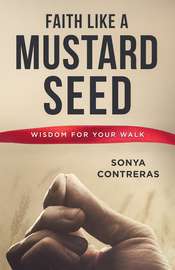
under the Table of Contents. Also available in book form.
Or here:
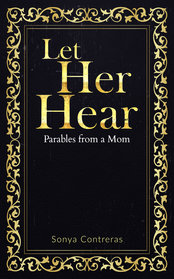
under the Table of Contents. Also available in book form.
Articles on Suffering can be found here,

under Table of Contents. Also available in book form.
Special Days
Remember: The Symbols of
Passover Explained
Aug 12, 2017 The Heavens Declare the Glory of God
July 4th, Freedom
What Is an American Soldier?
Valentine's Day: A Day of Love?
Memorial Day-A Day To Remember
Veterans' Day-To Honor Our Men
Fall Colors
First Thanksgiving Day
Proclamation
Christmas: Stories behind the Songs
Christmas: Stories behind the Songs, part 2
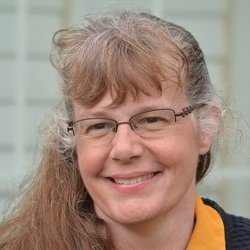
Author of Biblical fiction, married to my best friend, and challenged by eight sons’ growing pains as I write about what matters.
Receive weekly articles by giving your email address below:
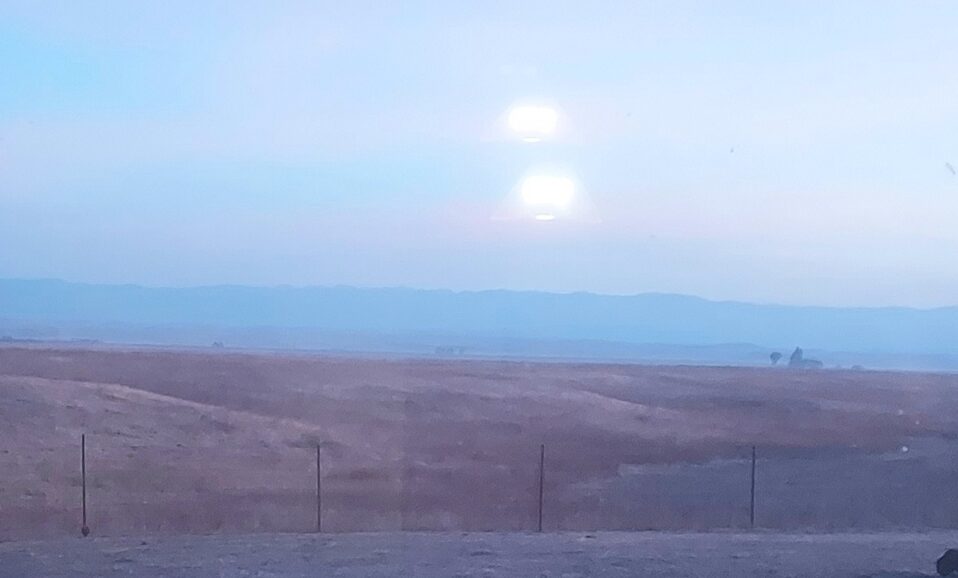
Wow, what an incredibly inspiring story of Muller. Just ordered a book from the library to read more of his life. I can't begin to count all the times we've been tested in our need to rely on God. With Steve being self-employed, our income was up and down constantly, and many times I was afraid of us going under. But God was always faithful and we were able to raise our children and pay off our house; we are so very blessed!